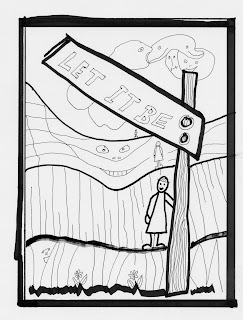Everyone processes thoughts, feelings and moods (TFM) which
are promoted by nature, nurture and serendipity (NNS). Individuals are unique
in fine detail but are like others from their particular cultures and
subcultures.
Man is a social animal and individuals have evolved to worry
about what group members think about them (gossip). This means that most
individuals are easily made to change their minds in tune with cultural fads
and fashions
Various words are used to label the process:- enculturation,
brainwashing, indoctrination, training, education, and enlightenment. The
process is supported by advertisements and propaganda.
In more sophisticated cultures there is also (a) facilitated
self-learning and (b) the promotion of study skills in support of evidence
based critical thinking. These days this involves taking account of social,
evolutionary, cognitive, positive and behavioural psychology and their links to
neuroscience.
Many of the above words carry a heavy emotional load. For
cultures to survive they must address the psychological impacts of change. This
includes (a) grappling with the implications of the illusory nature of the
mind-made ‘self’ and, (b) planning beyond the elegant duplicity of stage
managed heurism (ie facilitated self-learning ie enabling a person to discover
or learn something for themselves).
Although this is easier said than done it is do-able - especially
when individuals belong to a group of like minded people - which may or may not
include a specialist teacher eg an enlightened guru, a trained therapist or a
wise granny.
Arguably our ancestors were accustomed to life in relatively
small groups of foragers. But in recent times foraging gave way to settled
agriculture and then to more sophisticated forms of cultural organisation ie
city states, empires, nation states, and so to globalisation with wealth and
power in the hands of transnational corporations.
Evolutionary psychology suggests that we have stone age
brains struggling to survive in the internet age. There are the concepts of ME,
US and THEM. There is one set of beautiful rules and regulations governing behaviour
for ME and US and another belligerent set for US and THEM.
There are few absolutes and the boundaries between the
categories have been and can be significantly reworked. On one side are suicide
bombers, genocide, the holocaust, Hiroshima, the trenches in WW1 and
consumption of commodities. On the other side is the United Nations, the trade
union movement, social activists, art, music, and stamp collecting.
We now live as greedy and competitive individuals with
boundaries close to a selfish ME. But this is not inevitable. We are also hard
wired to be generous and cooperative amongst US but, in many people the gene
has not been switched on so we demonise and slaughter THEM. But this is not
inevitable. By paying attention to our TFM we can flick a variety of epigenetic
switches and awaken culture patterns better suited to environmentally friendly post
capitalism.
SO – how to make the changes? Change
minds. Notice what you feel and let the feelings go.
AND - Let it begin with me; and with
you (?)
Some form of Buddhism lite (please specify) might be
preferable to the hard line approach as outlined in the Dhammapada (300 BC):
Turning your back on pleasure and pain,
as earlier with sorrow and joy,
attaining pure equanimity,
tranquillity,
wander alone
like a rhinoceros.
as earlier with sorrow and joy,
attaining pure equanimity,
tranquillity,
wander alone
like a rhinoceros.

No comments:
Post a Comment